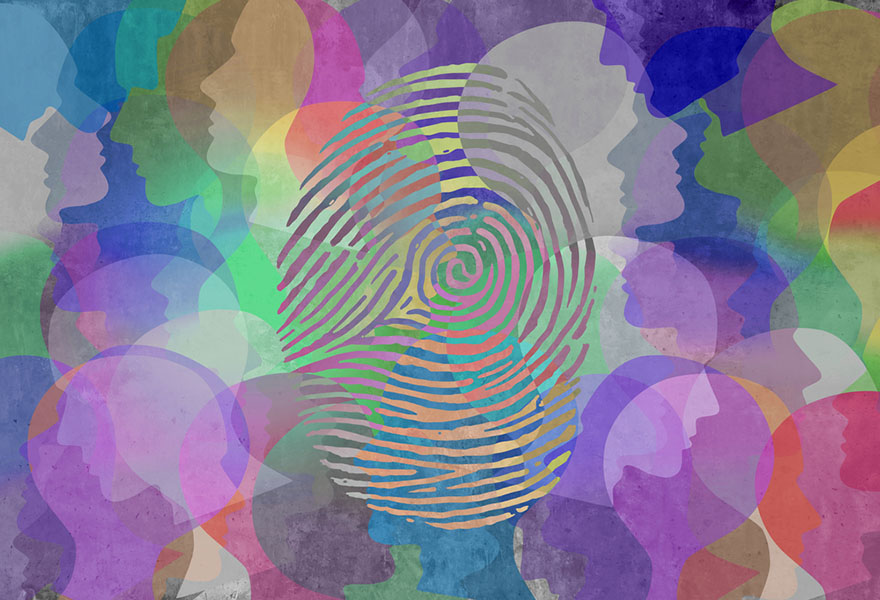A new study, published in Psychiatric Rehabilitation, examined how ethnic identity relates to personal recovery for young adults with experiences of serious mental health conditions. Results show that a stronger and more developed ethnic identity was associated with a greater sense of personal recovery.
These findings contribute much-needed information about how to promote psychological well-being among ethnically and racially marginalized youth. Given that a strong sense of ethnic identity may promote recovery, considerations of systemic oppression and racism are central to working with youth.
“Understanding an individual’s ethnic identity and culture has become a critical aspect of recovery-oriented psychiatric assessment and treatment planning. Ethnic identity, as an aspect of cultural identity, can shape an individual’s experiences of mental illness, as well as perceptions of which services are acceptable and helpful for their recovery. This seems to be of particular importance for services provided to young adults whose ethnic identities and experiences with marginalization can affect their experiences of mental health care,” write the authors, led by Kiara Moore, a researcher at the Silver School of Social Work at New York University.
 The researchers focus on what they term “serious mental illness (SMI).” They do not explicitly define SMI in this paper, but the participants were diagnosed with “schizophrenia spectrum disorders,” “depressive disorders,” or “bipolar disorders.” These concerns tend to emerge in young adulthood during key developmental milestones of identity formation. Thus, they may disrupt identity development and related recovery.
The researchers focus on what they term “serious mental illness (SMI).” They do not explicitly define SMI in this paper, but the participants were diagnosed with “schizophrenia spectrum disorders,” “depressive disorders,” or “bipolar disorders.” These concerns tend to emerge in young adulthood during key developmental milestones of identity formation. Thus, they may disrupt identity development and related recovery.
The authors write that “ethnic identity is one aspect of identity formation that captures the quality of belonging and attachment to one’s ethnic group.” Developing a sense of ethnic identity is a part of healthy development in adolescence and adulthood, particularly in promoting psychological health.
Ethnic identity and cultural identity shape experiences of mental health problems and the provision of recovery services. This is especially important for racially and ethnically marginalized youth who experience disparities in mental health services and often feel misunderstood or distrustful of mental health services.
Furthermore, past research shows that experiencing racial microaggressions increases symptoms of traumatic stress and that experiencing gendered-racial microaggressions increases suicide risk for Asian-American women. Despite the ongoing development of new frameworks to conceptualize healing models for racial trauma, the impact of racism on mental health remains greatly understudied.
“Further study on the relationship between ethnic identity and mental health recovery can help to identify more specific, person-centered targets for intervention during this crucial develop-mental period and ultimately improve care and overall outcomes for diverse young adults with SMI,” the researchers write.
The research team conducted a quantitative analysis on a group of young adults (n = 121) in personalized recovery-oriented (PROS) programs that service low-income youth with SMI.
After conducting a multivariate regression analysis examining which factors predicted personal recovery, the researchers found that participants’ perceptions of recovery and their feelings of belonging and attachment to their ethnic group were positively related. In other words, ethnic identity was a significant factor impacting personal recovery.
This study provides evidence that ethnic identity formation is a necessary consideration in the formulation and delivery of support for youth experiencing serious mental health concerns.
“Results suggest that ethnic identity could play an important role in reducing mental health disparities among minority young adults with SMI. In particular, the study illustrates that those young adults with a strong sense of belonging and identification with their ethnic group report significantly higher personal recovery. Future research focused more closely on how to develop and/or support ethnic identity in clinical contexts could lead to more young adults living a life with meaning, purpose, and fulfillment.”
Moore and colleagues recommended that future research focus on how to develop and support ethnic identity in clinical work in order to support improving young adults’ quality of life.
****
Moore, K., Munson. M.R., Shimizu, R., & Rodwin, A.H. (2022). Ethnic identity, stress, and personal recovery outcomes among young adults with serious mental health conditions. Psychiatric Rehabilitation Journal. DOI: 10.1037/prj0000523. (Abstract)















Sounds about right but asking mainstream America to take culture seriously (without fetishizing it) in my experience is like getting a dog to walk on its hind legs.
Report comment